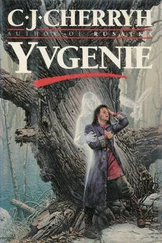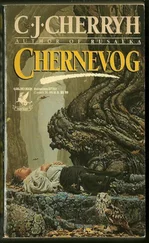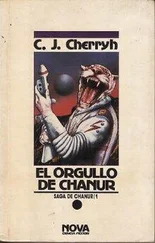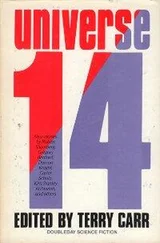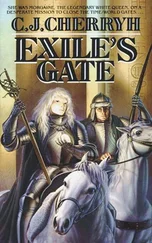C. Cherryh - Gate of Ivrel
Здесь есть возможность читать онлайн «C. Cherryh - Gate of Ivrel» весь текст электронной книги совершенно бесплатно (целиком полную версию без сокращений). В некоторых случаях можно слушать аудио, скачать через торрент в формате fb2 и присутствует краткое содержание. Жанр: romance_fantasy, на английском языке. Описание произведения, (предисловие) а так же отзывы посетителей доступны на портале библиотеки ЛибКат.
- Название:Gate of Ivrel
- Автор:
- Жанр:
- Год:неизвестен
- ISBN:нет данных
- Рейтинг книги:5 / 5. Голосов: 1
-
Избранное:Добавить в избранное
- Отзывы:
-
Ваша оценка:
- 100
- 1
- 2
- 3
- 4
- 5
Gate of Ivrel: краткое содержание, описание и аннотация
Предлагаем к чтению аннотацию, описание, краткое содержание или предисловие (зависит от того, что написал сам автор книги «Gate of Ivrel»). Если вы не нашли необходимую информацию о книге — напишите в комментариях, мы постараемся отыскать её.
Gate of Ivrel — читать онлайн бесплатно полную книгу (весь текст) целиком
Ниже представлен текст книги, разбитый по страницам. Система сохранения места последней прочитанной страницы, позволяет с удобством читать онлайн бесплатно книгу «Gate of Ivrel», без необходимости каждый раз заново искать на чём Вы остановились. Поставьте закладку, и сможете в любой момент перейти на страницу, на которой закончили чтение.
Интервал:
Закладка:
“No,” he said again. “I could not sleep.”
She nodded, settled, and curled herself back to sleep.
The snows had passed by morning; the sun rose clear and bright upon them, beginning even to melt a little of the snow, and they took their way down the other side of the mountain ridge, among pines and rocks and increasing openness of the road.
Upon a height they suddenly had view of lower lands, of white shading into green, where lesser altitudes had gained less snow, and forest lay as far as the eye could see into lesser Koris and into the lower lands.
Far away beyond the haze lay the ominous cone of Ivrel, but it was much too far to see. There were only the hazy white caps of Alis Kaje, mother of eagles, and of Cedur Maje, which were the mountain walls of Morija, dividing Kursh from Andur, Thiye’s realms from those of men.
They rode easily this day, found grass for the horses and stopped to rest a time, rode on farther and in lighter spirits. They came upon a fence, a low shepherd’s fence of rough stones, the first indication that they had found of human habitation.
It was the first sight of anything human that Vanye had seen since the last brush of a Myya arrow, and he was glad to see the evidence of plain herder folk, and breathed easier. In the last few days and in such company as he now rode one could forget humanity, farms and sheep and normal folk.
Then there was a little house, a homely place with rough stone walls and a garden that had gone to weeds, snow-covered in patches. The shutters hung.
Morgaine shook her head, incredulity in her eyes.
“What was this place?” he asked her.
“A farm,” said Morgaine, “a fair and pleasant one.” And then: “I spent the night here—hardly a month of my life ago. They were kindly folk who lived here.”
He thought to himself that they must also have been fearless to have sheltered Morgaine after Irien; and he saw by leaning round in his saddle when they had passed to the far side of the house, that the back portion of the roof had fallen in.
Fire? he wondered. It was not a surprising vengeance taken on people that had sheltered the witch. Morgaine had an uncommon history of disasters where she passed, most often to the innocent.
She did not see. She rode ahead without looking back, and he let his bay—he called the beast Mai, as all his horses would be Mai—overtake the gray. They rode knee to knee, morose and silent Morgaine was never joyous company. This sight made her melancholy indeed.
Then, upon a sudden winding of the trail, as the pines began to crowd close upon them and upon the little fence, there sat two ragged children.
Male and female they seemed to be, raggle-taggle, shag-haired little waifs of enormous dark eyes and pinched cheeks, sitting on the fence itself despite the snow. They scrambled up, eyes pools of distress, stretching out bony hands.
“Food, food,” they cried, “for charity.”
The gray, Siptah, reared up, lashing with his hooves; and Morgaine reined him aside, narrowly missing the boy. She had hard shift to hold the animal, who shied, wide-nostrilled and round-eyed until his haunches brought up against the wall upon the other side, and Vanye curbed his Mai with a hard hand, cursing at the reckless children. Such waifs were not an uncommon sight in Koris. They begged, stole shamelessly.
There but for Rijan, Vanye thought occasionally: lord’s bastards sometimes came to other fates than he had known before his exile. The poor were frequent in the hills of Andur, clan-less and destitute, and poor girls’ fatherless children generally came to ill ends. If they survived childhood they grew up as bandits in earnest.
And the girl perhaps would spawn more of her own kind, misery breeding misery.
They could not be more than twelve, the pair of them, and they seemed to be brother and sister—perhaps twins. They had the same wolf-look in their eyes, the same pointed leanness to their faces as they huddled together away from the dangerous hooves.
“Food,” they still pleaded, holding out each a hand.
“We have enough to spare.” Vanye directed his words to Morgaine, a request, for their saddlebags were still heavy with the frozen venison of days before. He pitied such as these children, loathsome as they were, always gave them charity when he could—for luck, remembering what he was.
And when Morgaine consented with a nod he leaned across and lifted the saddlebag from Siptah’s gray back and was about to open it when the girl, venturing close to Mai, snatched his saddleroll off the rear of the saddle, slashing one of its bindings.
He cursed volubly, wiser than to drop their food and give chase to one while the boy lingered: he tossed the leather-wrapped packet at Morgaine, flung his leg over the horn. The boy fled too, vaulting the wall. Vanye went close after him.
“Have a care,” Morgaine wished him.
But the fleeing urchins dropped his belongings. Content with that, he paused to gather things up, annoyed that they returned to jeer at him like the naughty children they were, dancing about him.
He snatched as the boy darted too close to him, meaning no more than to cuff him and shake him to sober sense; the boy twisted in his grip and gave forth a stream of curses, and the girl with a shriek rushed at him and clawed at his hand upon the boy—a bodkin in her hand. It pierced deep, enough that he snatched back his hand.
They shrieked and ran, leaving him with the spoils, and vanished among the trees. He was still cursing under his breath when he returned to Morgaine, sucking at the painful wound the little minx had dealt his hand.
“Children of imps,” he muttered. “Thieves. Misgotten brigands.” He had lost face before his liyo , his lady-lord, and swung up into Mai’s saddle with sullen grace, having tied his gear behind. Until this time he had felt unworthily used, taken in treachery and unworthily on her part: it was the first time he had to feel that he had fallen short in his obligation, and that made him doubly debted, disgracing both himself and his liyo .
And then he began to feel strange, like a man having drunk too much wine, his head humming and his whole person strangely at variance with all that was about him.
He gazed at Morgaine in alarm, reluctant to plead for help, but suddenly he felt he needed it. He could not understand what was the matter with his senses. It was like the onset of fever. He swayed in the saddle.
Morgaine’s slim arm stayed him. She put Siptah close to him, holding him. He heard her voice speaking sharply to him and sternly ordering him to hold himself up.
He centered his weight and slumped, wit enough to do that, at least, distributing his failing body over Mai’s neck. The saddlehorn was painful; the bending cut off his wind. He could not even summon the strength in his arms to deal with that.
Morgaine was afoot. She had his injured hand. He felt pain in it, distantly, felt her warm mouth touch it. She dealt with it like snakebite, spitting out the poison, cursing at him or at her own fell spirits in a tongue he could not understand, which frightened him.
He tried to help her. He could not think of anything for a time, and was surprised to find that she had moved again, and was upon Siptah, leading his horse by the reins, and that they were riding again upon the snowy road. She had on his own plain cloak: the furs were warming him.
He clung to the saddle until his numb body finally told him that she had bound him so that he could not fall. He let himself go then, and yielded to the horse’s motion. Thirst plagued him. He could not summon the will to ask for anything. He was dimly aware of interludes of travel, interspersed with darkness.
And the darkness was growing in the sky.
Читать дальшеИнтервал:
Закладка:
Похожие книги на «Gate of Ivrel»
Представляем Вашему вниманию похожие книги на «Gate of Ivrel» списком для выбора. Мы отобрали схожую по названию и смыслу литературу в надежде предоставить читателям больше вариантов отыскать новые, интересные, ещё непрочитанные произведения.
Обсуждение, отзывы о книге «Gate of Ivrel» и просто собственные мнения читателей. Оставьте ваши комментарии, напишите, что Вы думаете о произведении, его смысле или главных героях. Укажите что конкретно понравилось, а что нет, и почему Вы так считаете.

